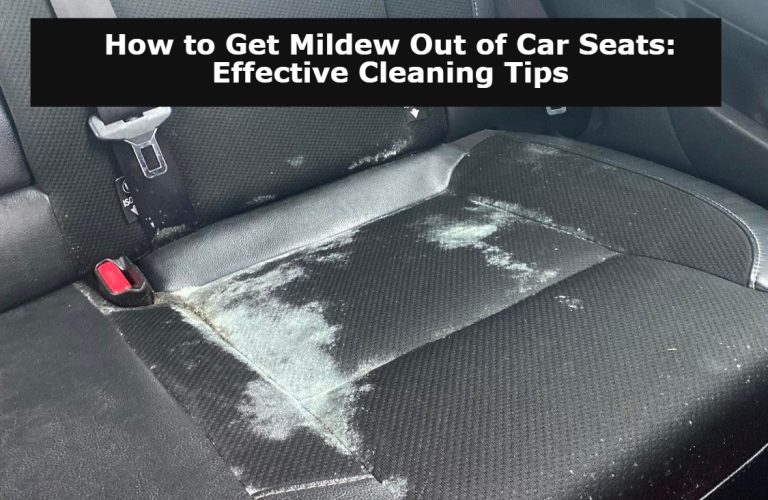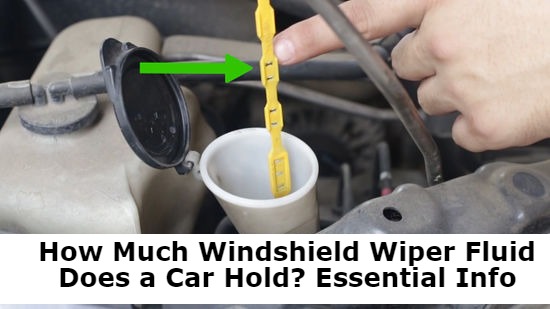How to Remove Water from Engine Oil
If you’ve ever driven through a deep puddle or flooded area, you’ve probably experienced water getting into your engine. While this may not seem like a big deal, if too much water accumulates in your engine oil, it can cause serious damage. In this guide, I’ll show you how to remove water from engine oil so that your car can run smoothly and prevent any long-term damage.
How to Remove Water from Engine Oil
If you notice water in your engine oil, it’s important to take action immediately. Water can cause corrosion and damage to your engine, so it’s important to remove it as soon as possible. There are a few ways to remove water from engine oil, and the method you use will depend on the amount of water present.
If there is only a small amount of water in your engine oil, you can try to remove it by draining and refilling the oil. This will remove some of the water, but it’s not a foolproof method. If there is a lot of water in your engine oil, you’ll need to flush the system. To do this, you’ll need to remove the oil pan and drain the oil. Once the oil is drained, you can flush the system with a solution of water and detergent. This will remove any remaining water and debris from the engine.
What you’ll need:
- Drain pan
- Funnel
- New oil filter
- Engine oi
- Clean rags
Instructions:
1. Drive the car for about 10-15 minutes to warm up the engine oil. This will make it easier to drain
2. Place a drain pan under the oil drain plug and remove the plug. Allow the oil to drain completely
3. Remove the old oil filter and replace it with a new one.
4. Pour the new engine oil into the funnel and slowly add it to the engine.
5. Check the oil level and add more if necessary.
6. Start the engine and check for leaks.
7. If there are no leaks, you’re done!
If you find that there is water in your engine oil, it’s important to remove it as soon as possible. By following the steps above, you can easily remove water from engine oil and keep your car running smoothly.
How to prevent water from entering your engine oil in the future
There are a few things you can do to prevent water from entering your engine oil in the future. First, make sure that your car is regularly serviced and that the oil is changed on a regular basis. This will help to keep the engine clean and free of debris. Second, avoid driving through deep puddles or flooded areas. If you must drive through water, drive slowly and carefully to avoid getting water in the engine. Finally, keep an eye on the oil level and color. If you notice any changes, take your car to a mechanic to have it checked out.
By following these simple tips, you can help to prevent water from entering your engine oil and damaging your car.
The consequences of not removing the water from your engine oil
Once you’ve removed the water from your engine oil, it’s important to take preventive measures to keep it from happening again. If you don’t remove the water from your engine oil, it can cause a number of problems.
First, the water can cause corrosion and rusting of the engine parts. This can lead to serious damage and may even cause the engine to seize up.
Second, the water can dilute the oil and make it less effective at lubricating the engine. This can cause increased wear and tear on the engine parts, which can lead to expensive repairs.
Finally, the water can cause the oil to foaming and aerate, which can reduce its ability to cool the engine. This can lead to overheating and damage to the engine.
If you find water in your engine oil, it’s important to take action immediately. By following the steps above, you can remove the water and prevent any long-term damage.
Tips and tricks for keeping your engine running smoothly
There are a few things you can do to keep your engine running smoothly.
✅ Regularly check the oil level and color. If you notice any changes, take your car to a mechanic to have it checked out.
✅ Change the oil on a regular basis according to the manufacturer’s recommendations. This will help to keep the engine clean and free of debris.
✅ Avoid driving through deep puddles or flooded areas. If you must drive through water, drive slowly and carefully to avoid getting water in the engine.
✅ Keep an eye on the engine temperature gauge. If it starts to rise, pull over and turn off the engine immediately. Overheating can cause serious damage.
✅ If your car has a oil pressure light, pay attention to it. If it comes on, pull over and turn off the engine immediately. This could be an indication of low oil levels or other problems.
✅ Have your car serviced regularly. This will help to keep the engine in good condition and prevent problems from developing.
By following these simple tips, you can help to keep your engine running smoothly and avoid expensive repairs.
FAQs
Q: What should I do if I find water in my engine oil?
A: If you find water in your engine oil, it’s important to remove it as soon as possible. By following the steps above, you can easily remove water from engine oil and keep your car running smoothly.
Q: How to remove water from motor oil at home?
A: The best way to remove water from motor oil is to use a water separator. This will help to remove the water from the oil and keep your car running smoothly.
Q: How do I prevent water from entering my engine oil in the future?
A: There are a few things you can do to prevent water from entering your engine oil. First, make sure your car is regularly serviced and that the oil is changed on a regular basis.
Q: Can A Water Damaged Engine Be Fixed?
A: If the water damage is extensive, it may not be possible to fix the engine. However, if the damage is minor, it may be possible to repair the engine and avoid costly repairs.
Q: How Much Does It Cost to Fix Water In An Engine?
A: The cost to fix water in an engine depends on the extent of the damage. If the damage is minor, it may be possible to repair the engine without replacing any parts. However, if the damage is extensive, it may be necessary to replace some or all of the engine parts. the average cost will be in between $500 and $700.
Q: How long does it take for water to separate from engine oil?
A: It typically takes around 12 hours for water to separate from engine oil. However, this can vary depending on the temperature and the type of oil used.
Q: Is it good to flush engine oil?
A: No, it’s not good to flush engine oil. This can cause debris and sludge to build up in the engine, which can lead to expensive repairs.
Q: What are the symptoms of water in engine oil?
A: The symptoms of water in engine oil include a drop in oil pressure, a decrease in fuel economy, and an increase in engine temperature. If you notice any of these symptoms, it’s important to take your car to a mechanic to have it checked out.
Final Verdict
Water in engine oil is a serious problem that can lead to expensive repairs. However, by following the steps above, you can easily remove water from engine oil and keep your car running smoothly. If you have any questions about water in engine oil, be sure to ask a mechanic.
Thanks for reading.







